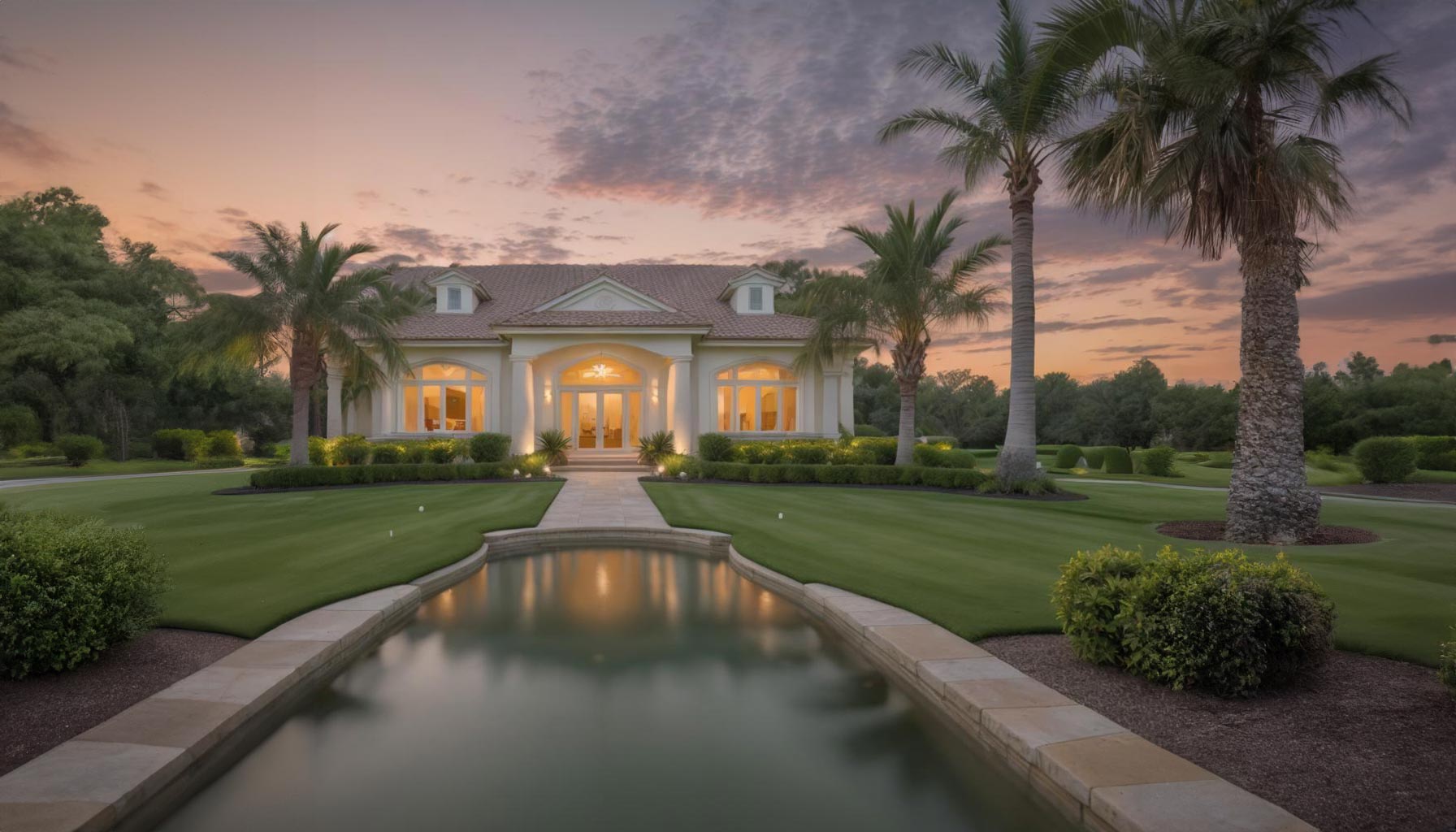Evaluating Golf Course Homes as Investment Opportunities: Key Factors to Consider
Investing in real estate can be a rewarding venture, offering the potential for capital appreciation, rental income, and personal enjoyment. One niche market that often intrigues investors is homes located on golf courses. The allure of picturesque views, manicured landscapes, and exclusive community amenities might prompt you to ask: “Is buying a home on a golf course a good investment?” This article delves into the various facets of golf course home ownership to help you make an informed decision.
Understanding the Appeal
Golf course homes are synonymous with luxury and prestige, offering residents not just a place to live but a lifestyle. The scenic beauty, immediate access to golfing facilities, and the often gated and secure environments are significant draws. These homes typically come with higher property values due to their desirable location and the amenities offered within the community.
Market Trends and Property Values
Historically, homes on golf courses have maintained their value well, thanks to their sought-after locations and the limited availability of such properties. However, like any real estate investment, they are subject to market trends and economic fluctuations. It’s crucial to research the specific area and golf course community you’re considering. Look at the historical property value trends in the area, the financial health of the golf course, and any future development plans that could affect property values.
Potential Benefits
Enhanced Quality of Life: Living on a golf course provides a serene environment, often with additional privacy and reduced traffic noise. The proximity to the course allows for easy access to leisure activities, fostering a lifestyle that many find appealing.
Strong Community Ties: Golf course communities often feature clubhouses, social events, and other amenities that promote a close-knit community atmosphere.
Rental Opportunities: If located in a popular golfing destination, your property could serve as a lucrative vacation rental or a short-term lease for golf tournaments and events.
Considerations and Risks
Premium Pricing: Homes on golf courses typically command a premium price, which could mean a higher initial investment compared to similar properties in non-golfing areas.
Association Fees: Many golf course communities have homeowners’ associations (HOAs) with fees that can be significantly higher than those in other communities, impacting your overall return on investment.
Market Specificity: The golf real estate market can be niche and volatile. The popularity of golf as a sport and the financial stability of the golf course can heavily influence property values.
Maintenance and Privacy: Living on a golf course can sometimes mean dealing with stray golf balls or golfers near your property, which might affect your experience and privacy.
Making an Informed Decision
Before purchasing a home on a golf course, consider the following steps to ensure a sound investment:
Conduct Thorough Research: Analyze market trends, explore the community, and understand the HOA fees and regulations.
Assess the Golf Course’s Viability: Investigate the golf course’s reputation, membership levels, and financial stability.
Evaluate the Location: Consider the property’s proximity to amenities, cities, and transportation, as well as its potential appeal to future buyers.
Consult with Real Estate Professionals: Work with agents experienced in golf course properties who can provide valuable insights and guidance.
In conclusion, while buying a home on a golf course can offer numerous benefits and a potentially lucrative investment, it’s essential to weigh the unique factors and risks associated with this type of property. With careful consideration and due diligence, you can determine whether a golf course home is the right investment for you.

